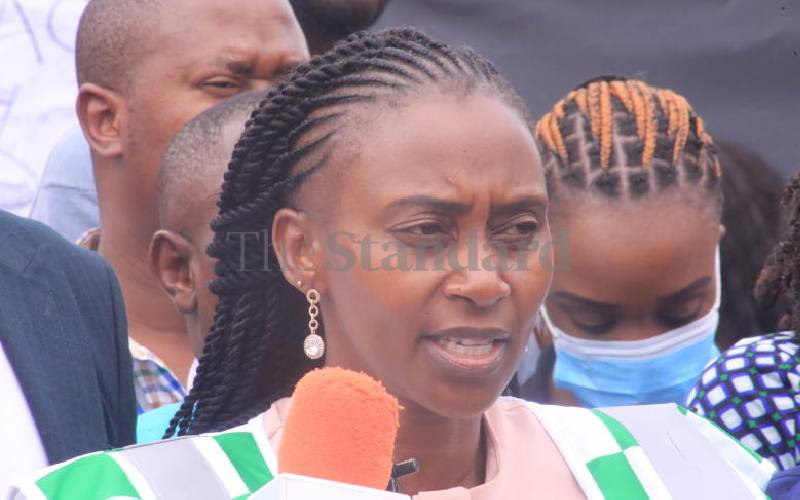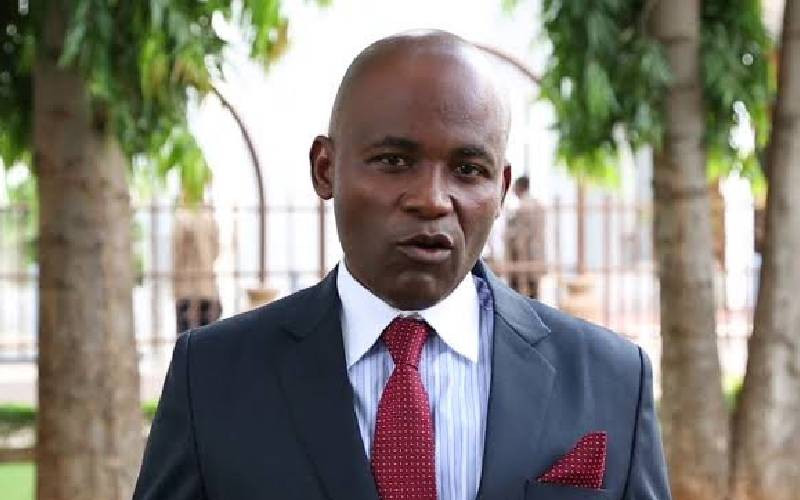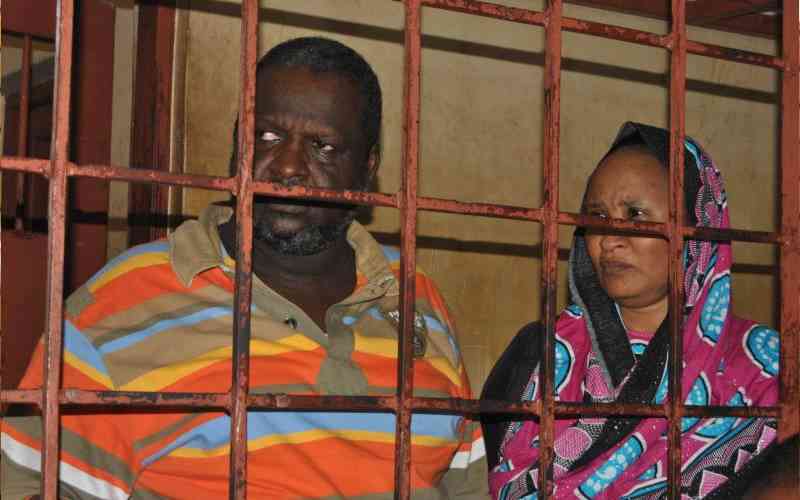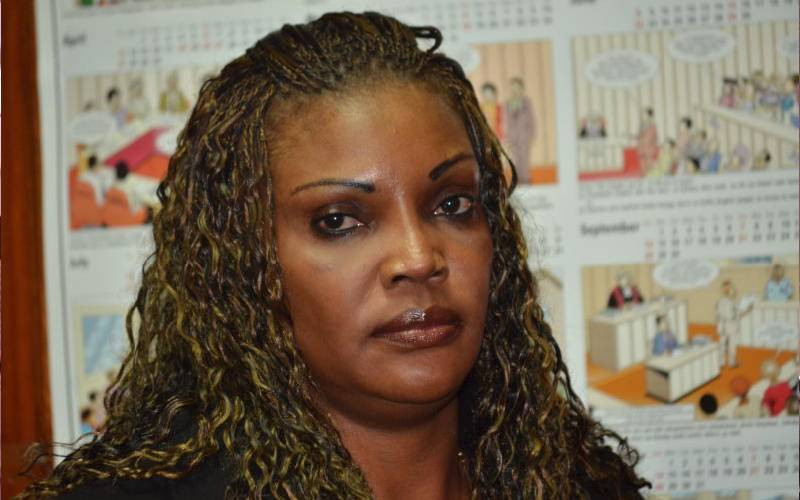Two months after the coronavirus pandemic outbreak in almost every corner of the world, the World Health Organisation (WHO) predicted a global mental health crisis triggered by the coronavirus.
This prompted the Ministry of Health experts to urge Kenyans to take reasonable steps to avoid getting caught up in the crisis.
The uncertainty brought about by the coronavirus pandemic has made it impossible for many Kenyans to fully participate in social life. Burdened by the loss of jobs and an uncertain future, the situation is expected to exacerbate the already poor mental health state of the nation.
Christine Adhiambo, 29, who has been battling depression says the uncertainties have made her situation worse.
“I have been having relapses and mental breakdowns. I am anxious and nervous. Coping is hard, especially if you don’t have a strong support system. But at the same time I am grateful because I still have a job,” she says.
For Aisha Akinyi, a 27-year-old businesswoman in Nairobi, things have slowly escalated from bad to worse. “I don’t know what will happen tomorrow. I am living a day at a time. When the year began I had so many plans, I wanted to expand my business but now I am stuck, the situation makes me so worried and it is having a heavy toll on my mental health.”
WHO warned that the world should expect to see an upsurge in the severity of mental illness, including amongst children, young people, and healthcare workers.
“The isolation, the fear, the uncertainty, the economic turmoil could cause psychological distress,” said WHO’s Mental Health Director Devora Kestel.
Having realised the threat the coronavirus has on mental health, Health Cabinet Secretary Mutahi Kagwe announced a toll-free line that would help people battling depression during this pandemic. Other organisations including Absa and Minnet have also chipped in.
Dr Chitayi Murabula a Psychiatrist and mental health advocate at the Ministry of Health advises the general public to avoid exposure to excessive information and news about Covid-19.
“To maintain good mental health, you need to have routine especially now that majority are working from home. Arrange your house in such a way that you have a place to work, to rest, and where you have sufficient sleep. Also, slot in some hobbies,” he advises.
Dr Murabula also explains the importance of good sleep hygiene. “Sleep is important for mental health. Go to bed and wake up at a constant time every day, do not sleep during the day as daytime naps interfere with the routine.”
Mental health experts around the world are insisting on getting information from reliable sources since there’s an avalanche of fake news especially on social media that cause anxiety and panic attacks.
Notably, the majority of Kenyans cannot distinguish the different kinds of mental illnesses, which explains why most cases of suicide are missed.
A report by the Ministry of Health has identified depression and suicide as the leading mental health illnesses in the country.
Stay informed. Subscribe to our newsletter
However, the report notes poor documentation of mental illnesses by health workers, as all neurological related conditions are lumped up together.
“At present, only one indicator captures all mental disorders in the existing health information system. This means that health care workers are forced to record substance use disorders, suicide attempts, schizophrenia, and depression simply as mental disorders,” reads the report released on July 7.
The report titled “Mental health and well-being towards happiness and national prosperity” indicates that Kenyans do not know the different behaviours that are synonymous to mental illness.
As a result, the report compiled by a task force led by Dr Frank Njenga, notes that care for the affected is not given on time and it comes when the disease has worsened.
According to the report, Kenyans think that the term mental health was synonymous with mental illness.
It further notes that in the last few years, society has witnessed an unprecedented number of people and families adversely affected by poor mental health. Kenya, however, does not have the exact data on suicide cases. “This is the ticking time bomb that Kenyans are sitting on,” reads the report.
It notes that it is estimated that, globally, one person dies by suicide every 40 seconds. Other illnesses mentioned are substance use disorder, bipolar disorder, schizophrenia and other psychoses.
The report notes that unlike other illnesses, the greatest impact of mental ill-health does not lie solely in the number of persons who die from the disease, but from the number of years lived with the disability.
Official records, as noted by the task force report, suggest that in 2016, the national suicide mortality rate was 3.2 per 100,000 people.
“Experts believe that the true figures are much higher. Whatever the truth, Kenyans have the duty to care for their countrymen who reach, by reason of mental disorder, depths of despair that lead to suicide,” the report reads in part.
This picture, the report says, is adequate to conclude that Kenya can no longer bury its head in the sand as people continue to cry out for help.
“It was clear that at least 25 per cent of outpatients and 40 per cent of inpatients in different health facilities had a mental illness, and an estimated prevalence of psychosis stated as one per cent of the general population,” reads the report.
However, that attempted suicide remains recorded as a criminal act by those who perform it means that Kenyans who suffer the severe pain inflicted by depression suffer also the additional trauma of being viewed as criminals.
[Additional information by Graham Kajilwa]
 The Standard Group Plc is a
multi-media organization with investments in media platforms spanning newspaper
print operations, television, radio broadcasting, digital and online services. The
Standard Group is recognized as a leading multi-media house in Kenya with a key
influence in matters of national and international interest.
The Standard Group Plc is a
multi-media organization with investments in media platforms spanning newspaper
print operations, television, radio broadcasting, digital and online services. The
Standard Group is recognized as a leading multi-media house in Kenya with a key
influence in matters of national and international interest.
 The Standard Group Plc is a
multi-media organization with investments in media platforms spanning newspaper
print operations, television, radio broadcasting, digital and online services. The
Standard Group is recognized as a leading multi-media house in Kenya with a key
influence in matters of national and international interest.
The Standard Group Plc is a
multi-media organization with investments in media platforms spanning newspaper
print operations, television, radio broadcasting, digital and online services. The
Standard Group is recognized as a leading multi-media house in Kenya with a key
influence in matters of national and international interest.








